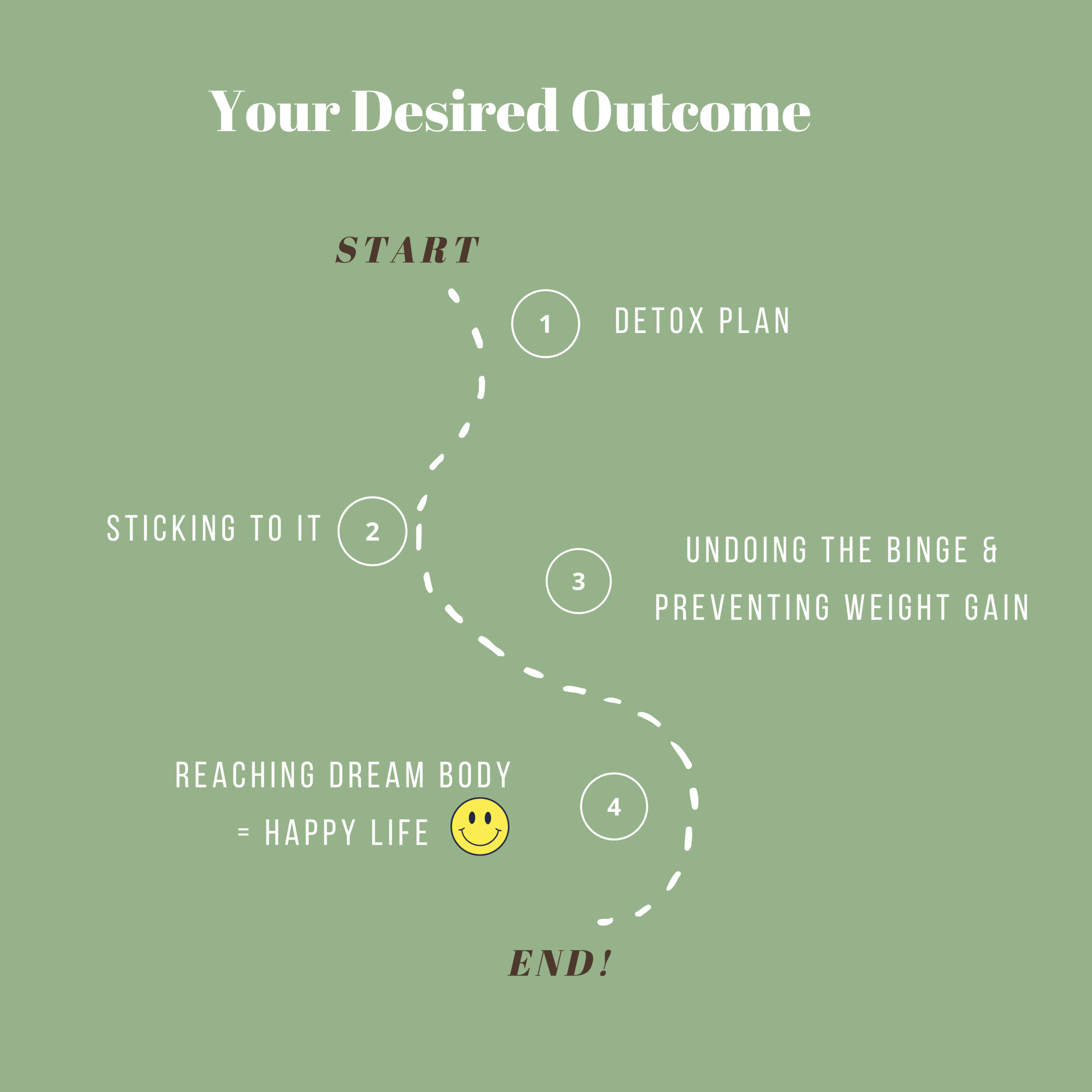“I’ve eaten too much over the holidays”: 5 Tips to clean up the ‘mess’
Was it too much again? You wanted to control yourself but couldn't and ate so much to a point you felt physical pain? Another holiday binge…
You are probably glad that it is finally Sunday and the holidays are almost over. Tomorrow starts a new, a “better” week, right?
Overeating at the holidays was part of my life for at least half a decade. At Christmas, I ate everything I could get my hands on. Whether I really enjoyed it or not.
It was the holidays, and I had to take advantage of that. That one time when I was "allowed" to have everything.
So I stuffed myself with food just for the sake of eating, without really tasting what I was eating, let alone enjoying it...
If that sounds familiar to you listen up.
I would like to give you five tips that I would have liked to take to heart when I wanted to "make up" for my binge eating during the holidays back then.
The Past Is The Past
I know it's hard and it's tempting to try to make up for eating too much. I know your thoughts exactly, because I myself believed for years that it would work. But you have to realise that trying to get better in the present to make up for the past will lead to staying where you are for the future. It becomes an endless cycle of trying to be better and binge eating.
Your desired outcome will never be reached this way. The past is the past and by trying to un-do it, you get yourself deeper into the cycle, which needs to be broken in order for you to live a binge-free life.
2. Eat
The fact that you ate more over the holidays does not mean that you have to eat less or more restrictively the next week. So eat foods that you really enjoy, not what is supposedly good for weight loss. For example, if you stick to only low-calorie foods, you are more likely to binge eat. How that? Because the fact that you forbid yourself increases your cravings. Your brain becomes obsessed with the forbidden, and eventually you give in to it. So don't set this process in motion and instead eat foods that you actually enjoy.
3. Move
Move your body, but don't squeeze in an extra workout. Don't try to work out more because it might drain you. If you feel low on energy after a workout, you are more likely to binge eat because you want to feel more energetic and happy.
You might also be an emotional eater. Because you have trained your brain to respond to certain emotions with food, you automatically feel the need to eat as soon as you feel exhausted.
So exercise for fun and to feel better. You could go for a walk while listening to your favourite podcast instead of running for hours on the treadmill to burn calories.
4. Change The Why
Why did you feel the need to overeat? Was it because the food that was served didn't seem healthy enough or didn't fit into your diet plan? Did you feel guilty?
The only way to get better is to change the "why". Your life revolves so much around food because you still hold on to the desired outcome you have. The dream body that means a “happy life”. I'm not saying to give up on your goals (as long as they're healthy), but the way you've been trying for so long, it's not going to work. When you stop labelling food as unhealthy or following unrealistic diets, you have the chance to recover and develop a healthy relationship with food again. To eat without guilt and thus realistically approach your desired lifestyle. So change the why by breaking out of the cycle of restriction and binge eating.
5. Be Gentle
And this is how you start:
The first thing is to remove the labels - from everything. There are no more good or bad foods, no more food rules, like no eating after 7pm.
Take inspiration from meals when deciding what to eat, but don't copy anyone. Don't strive for perfection, because the perfection you strive for may not even be your personal "perfect".
Eat what you really want without judging your decision. Remember: no good or bad.



